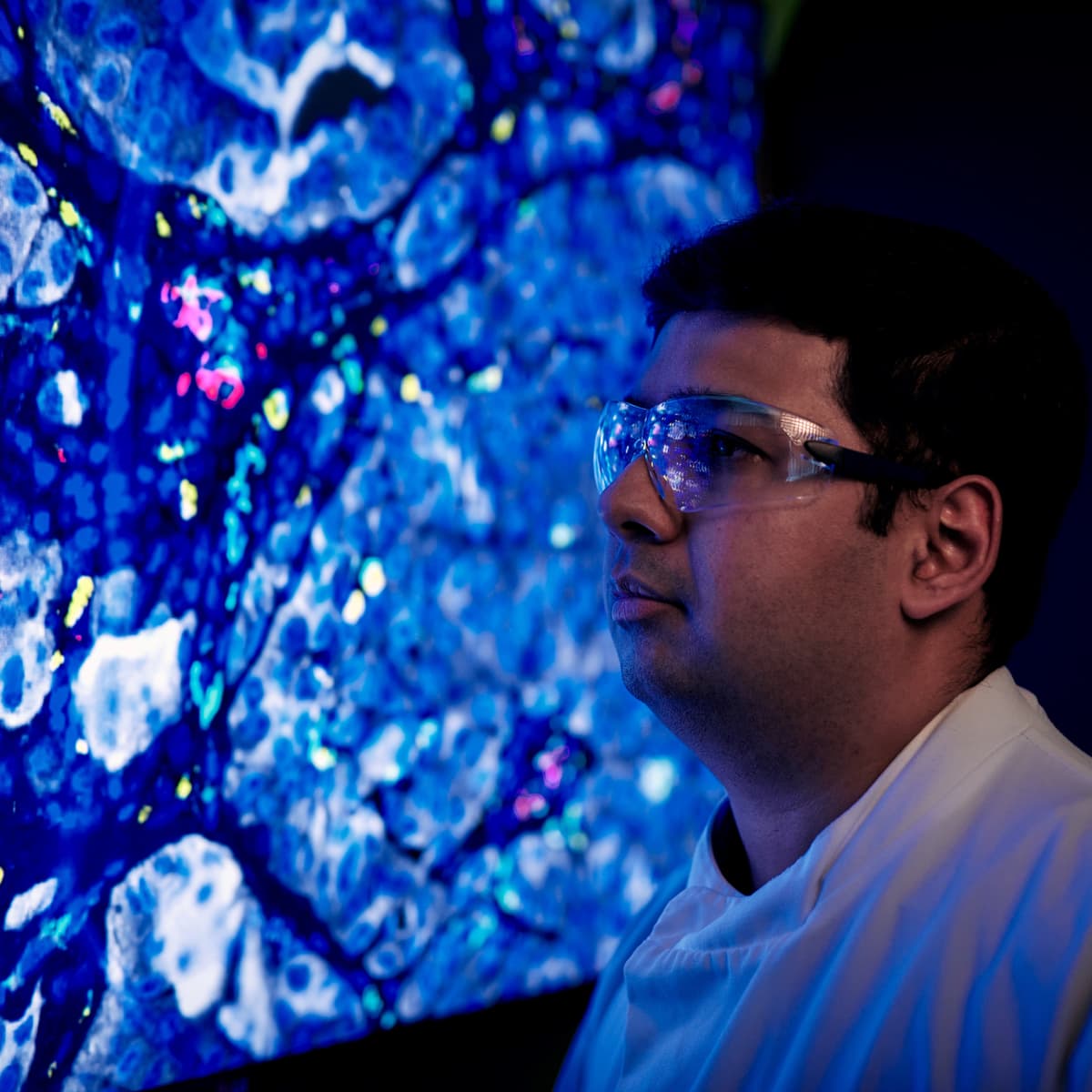
We're at the forefront of the global fight against cancer, working with incredible researchers and partners across the world to achieve our ambitious vision for a better future.
Our strategy shapes how we'll discover more about the mechanisms of how cancer develops and progresses to unlock new and better ways to prevent, detect and treat it.
Our funding process is supported by an exceptional peer review network, expert panels and committees. With their support, we can identify and support the highest-quality cancer research with the greatest potential to make an impact for people affected by cancer.
We partner with organisations ranging from small cancer specific charities to large multi-national research funders. Together we can accelerate progress and make a real difference for people affected by cancer.
Our strategic approach to equality, diversity and inclusion in research lays out a blueprint for how we will work towards ensuring beating cancer means beating it for everyone.
We want our research to be as impactful as possible. To achieve this, we’re committed to involving people affected by cancer in our work and in the research that we fund.

Our long-term investment in critical infrastructure has helped create a thriving network of research across the UK. These facilities provide research and translational capabilities and support close partnerships with universities and the NHS.

Our Centre for Drug Development (CDD) partners with biotechs, pharmaceutical companies and academics world-wide to deliver early-phase clinical trials, accelerating the next generation of cancer treatments to patients.

Cancer Research Horizons is our translational arm. It works closely with researchers, industry partners and investors to translate cutting-edge innovations into new tools, treatments and diagnostics for people affected by cancer.
We host scientific conferences, workshops, webinars and other events. Join us to hear about the latest science, present your research and network with our exceptional community.
Subscribe to our newsletters to hear about the latest news, funding opportunities, events and conferences and other research stories.
Explore our latest articles and podcasts for researchers, exploring issues in cancer science and how that science shapes our understanding of the disease.